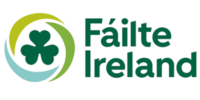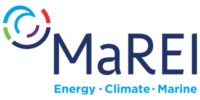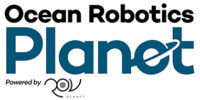Special panel: Fair solutions in Engineering for sustainable oceans
Special panel: Fair solutions in Engineering for sustainable ocean
Date: Thursday 8th June
Time: 11.10 – 12.40
Location: Jean Monnet Theatre, Main Building
Moderator: Niall McDonough, Marine Institute
- Eva-Maria Brodte, Alfred Wegener Institute Helmholtz Centre for Polar and Marine Research, AWI Department of Shelf Seas Systems Ecology
- Prof Karen Wiltshire, Alfred Wegener Institute Helmholtz Centre for Polar and Marine Research
- Fiona Beckman, Partnership for Observation of the Global Ocean (POGO)
- Toste Tanhua, GEOMAR, Coordinator “Shaping an Ocean Of Possibilities – SOOP”.
Abstract
Ocean research and instrumentation used in ocean research are often highly expensive and thus often limited to institutions of the global North. Despite the high-level acknowledgement of these urgent needs, the ability to access user-friendly, low-cost instrumentation is still a limiting factor in coastal ocean observing. The majority of marine observation equipment is difficult to deploy, costly to operate and requires specific technical skills. Recent technological advancements have allowed novel improvements in sensors, platforms and communication, which will move us forward into a new practicable coastal and global ocean observing philosophy. Therefore, we pledge for putting more effort in developing inexpensive equipment, open sources codes and sharing concepts of “fairdata” approaches making information accessible. Instrumentations and devices should be thought in new ways and tested on an operational basis and conducted a hands-on training module for young scientist easily accessible worldwide. Recently, several projects developed sensors, manuals, workflows in this account. The three pillars of developing suitable solutions are the right platforms, measurement with a probe and communication unit – here differences of needs in different areas of the globe has to be taken into account. The accessibility and user-friendliness were important as well as the availability of components in most countries of the world.
We would like to show and discuss our experience in the several open source, low cost devices projects.
Moderator: Dr Niall McDonough,
Director of Policy Innovation and Research Support Services at the Marine Institute.
Niall trained as a marine biologist with research interests in marine aquaculture and shellfish stock restoration. Following two years with the Environmental Change Institute at the National University of Ireland, Galway, he worked for five years as Head of the Centre for Marine Resources and Mariculture at Queen’s University Belfast. From 2009 to 2017, he served as Executive Director of the European Marine Board based at the InnovOcean campus in Ostend, Belgium. In 2017, Niall commenced his current role with the Marine Institute where he oversees the management of the Institute’s competitive marine research programme and coordinates the implementation of the National Marine Research and Innovation Strategy 2017-2021.
Eva-Maria Brodte
Alfred Wegener Institute Helmholtz Centre for Polar and Marine Research, AWI Department of Shelf Seas Systems Ecology
Dr Eva-Maria Brodte currently works at the Department of Shelf Seas Systems Ecology, Alfred Wegener Institute Helmholtz Centre for Polar and Marine Research at the Biologische Anstalt Helgoland. She is responsible for the guest Research & visiting scientist at Helgoland & Sylt. She is involved inseveral cost efficient sensor project operating in the global south.Eva-Maria does research in Ecology, Physiology & Marine Biology. Hercurrent project are the ‘NF-POGO Centre of Excellence’, shipboard training on board research vessel in various sizes, the OPENMOD project (Pogo), the EU project ASSEMBLE +, the GIZ Project “Taking the Pulse of the Ocean” (2nd MeerWissen call) in collaboration with Senegalese colleagues and the UN Ocean Decade affiliated project ORIENTATE TN with Tunisia.
Prof Karen Wiltshire,
Vice Director of the Alfred Wegener Institute
Prof Karen Wiltshire is the Vice Director of the Alfred Wegener Institute, Helmholtz Centre for Polar and Marine Research (AWI), and Director of the AWI sites on Helgoland and Sylt. As a coastal and climate researcher, she is engaged at the centre of the action. Coastal waters and its tidal interfaces are the cradle of life in the ocean: microalgae and seagrasses not only find ample nutrients to form underwater meadows and forests. In the intertidal, young herring, oysters & co. also hatch and grow, lending the coastal waters far greater biodiversity than the open sea. At the same time, no other ocean region is as intensively used. In many places, coastal protection structures, ports, towns and cities, not to mention tourism, protect, encroach and interact with mudflats, seagrass meadows, salt marshes, mangroves and dunes. The effects of climate change can also be felt especially strongly here – e.g. in the continual warming of the shelf seas, heat waves, and oxygen-deficient zones. Karen Wiltshire studies the North Sea and the Arctic shelf seas to determine how climate change and increased use by humans are affecting the structure and functions of the various coastal ecosystems, and the extent to which the organisms living there can adapt to change. As such, one of the greatest challenges of our time is to find new and sustainable ways of using the oceans. Karen Wiltshire is active on several committees in this area, has launched the Marine Protected Areas and Multi-Use Strategy Group in the Konsortium of German Marine Science and is a driving force for a fundamental transformation in European ocean and coastal use.
Fiona Beckman
Communications Officer at Partnership for Observation of the Global Ocean (POGO)
Fiona Beckman is the Communications Officer for Partnership for Observation of the Global Ocean (POGO), based in the UK, and is responsible for communicating POGO’s capacity development and innovative approaches to ocean observing, as well as hands-on outreach, advocacy, and ocean literacy work. She also provides comms support for POGO-funded working groups, training initiatives, and other projects in their early stages. Since 2020, Fiona has served on the UN Ocean Decade Strategic Communications Group (previously Communications Advisory Group). She has more than 25 years’ PR/comms experience across a wide range of sectors, but joining POGO in 2017 allowed her to combine her passion for communicating science with her lifelong love of the sea.
Toste Tanhua
GEOMAR, Senior Scientist, Coordinator “Shaping an Ocean Of Possibilities – SOOP” innovation platform
Dr Toste Tanhua is a chemical oceanographer focusing his research on ocean transient tracers and ocean observing systems. Since 2003 Toste Tanhua is a researcher at GEOMAR in Kiel after a post-doc at Scripps Institute of Oceanography, and a PhD at Göteborg University. He has participated on 35 seagoing expeditions all over the world. Toste is co-chair of the Global Ocean Observing System (GOOS) He is the coordinator of the newly started innovation platform “Shaping an Ocean Of Possibilities – SOOP













